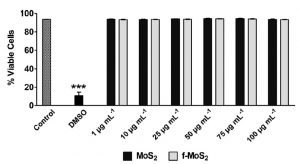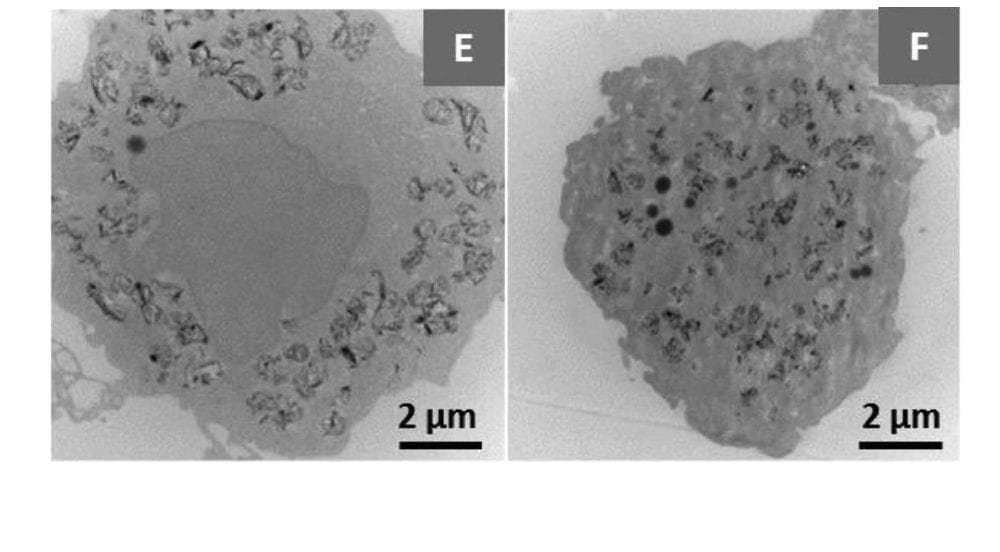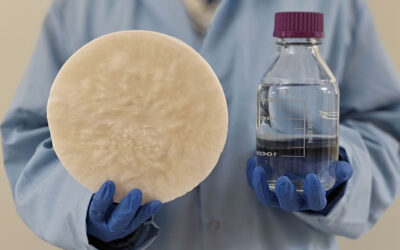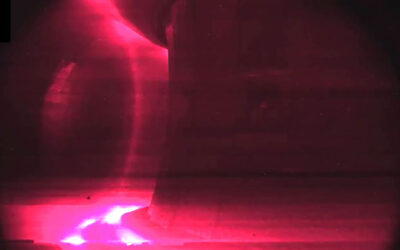‘Nano’ is not just a powerful trend in the research community: nanomaterials of all sorts are being approved for use in everyday products such as those related to healthcare and beauty, textiles and electronics. One clear favorite across many sectors (including electronics, healthcare, and renewable energy technologies) is MoS2. This material shows promise because of its combined advantages as both a 2D layered material like graphene and a transition metal dichalcogenide semiconductor.
As with any material, there is the question of its long-term stability. Given its potential applications, MoS2 must be able to survive in both air and aqueous media. Once incorporated into a device or injected into the body, how long can it be expected to last in the desired form? Under what conditions would it begin to break down? Once it does start to degrade, what new materials are formed, and what effects will these degradation products have on humans and the environment?

Flow cytometry analysis of HeLa cell viability exposed to different concentrations of MoS2 or f-MoS2 for 24 h. More results here.
These questions are now being tackled by a collaboration between the University of Strasbourg, France, and Rutgers, USA, who have assessed the biodegradability and the biocompatibility of both pristine MoS2 nanosheets and their covalently functionalised form.
Pleasingly, they discovered a high biocompatibility of both forms, and only minimal cytotoxicity of the degraded forms at the highest tested concentrations. Uptake of MoS2 was assessed in primary immune cells and in cancer cells, to confirm the causes of this minimal cellular impact.
The biodegradability of MoS2 was also explored at physiological concentrations of H2O2, a reactive oxygen species known to be present in significant amounts in tissues MoS2 would likely encounter, and which is already known to degrade it. The researchers discovered that the functionalised form was in all cases more stable to enzymatic degradation than the pristine nanosheets.
These findings will have an impact on the design and use of MoS2 in healthcare. Check out the details of their experiments in Advanced Functional Materials.

















